Consider df:
In [2729]: df = pd.DataFrame({'Store code':[1, 12, 132], 'Laptop brand':['Lenovo', 'Apple', 'HP'], 'Laptop price':[1000, 2000, 1200], 'Laptop weight':[1.2, 1.5, 1.4], 'star':[3, 5, 4]})
In [2730]: df
Out[2730]:
Store code Laptop brand Laptop price Laptop weight star
0 1 Lenovo 1000 1.2 3
1 12 Apple 2000 1.5 5
2 132 HP 1200 1.4 4
Use df._to_dict with orient='records':
In [2734]: x = df.to_dict('records') # Create a list of dicts from df
In [2738]: l = [] # Empty list for storing your output
In [2763]: for i in x: # Iterate every item in list of dicts
...: d = {}
...: d1 = {}
...: for k,v in i.items(): # Iterate each individual dict
...: if 'Laptop' in k: # Check if word `Laptop` is present in key
...: d1[k] = v # If yes, create a separate dict for all laptop keys
...: else:
...: d[k] = v
...: d['Laptop'] = [d1] # Add another key `Laptop` which holds a `list` of dicts of Laptop
...: l.append(d) # Append this dict in list
...:
Output:
In [2774]: print(json.dumps(l, indent=2))
[
{
"Store code": 1,
"star": 3,
"Laptop": [
{
"Laptop brand": "Lenovo",
"Laptop price": 1000,
"Laptop weight": 1.2
}
]
},
{
"Store code": 12,
"star": 5,
"Laptop": [
{
"Laptop brand": "Apple",
"Laptop price": 2000,
"Laptop weight": 1.5
}
]
},
{
"Store code": 132,
"star": 4,
"Laptop": [
{
"Laptop brand": "HP",
"Laptop price": 1200,
"Laptop weight": 1.4
}
]
}
]

